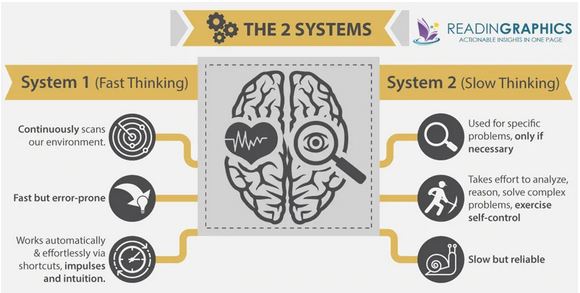The Art Of Thinking Clearly
How To Do More Than Just Survive And Reproduce
The 3 Steps To Clarity
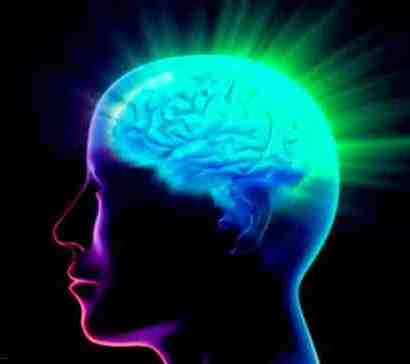
Introducing The Art Of Thinking Clearly
The art of thinking clearly starts with the sobering realisation that our brains are designed to achieve two things:
- Survival
- Reproduction
As Nassim Taleb succinctly put it:
“Our minds are not quite designed to understand how the world works, but, rather, to get out of trouble rapidly and have progeny."
98% of our thinking is unconscious, automatic and impulsive.
This thinking uses our mammalian brain which is all about emotions and is driven by our reptilian brain which is focused on survival.
The process of this thinking is based on assumptions, analogy and mental short-cuts and leaves us wide open to a very wide range of cognitive biases and distortions as it so often leads us to conclusions that confirm what we want to hear.
All of this is just wonderful from an evolutionary perspective as it keeps us alive and reproducing, but this conflicts deeply with the art of thinking clearly.
Professor William Irvine gives an overview of evolutionary psychology and the development of thinking systems in our brain:
The art of clear thinking is developed and exercised when we use the more recently evolved parts of our brain. This involves slower thinking that is thoughtful, deliberate, and calculating.
Only 2% of our thinking is slower thinking.
This slower thinking is hard work and involves effort and the use of a range of applied thinking skills
The function of slower thinking is to analyse, interpret and make connections, with the objective of achieving perspective, insight and understanding.
In his book "Thinking Fast and Slow" Daniel Kahneman describes these two thinking modes as 2 Systems.
System 1 is our fast thinking impulsive and reactive brain and System 2 is our slow thinking brain.
According to Kahneman:
"What gets in the way of clear thinking is that we have intuitive views of almost everything. So as soon as you present a problem to me, I have some ready made answer. What gets in the way of clear thinking are those ready made answers, and we can’t help but have them"
How To Exercise The Art Of Thinking Clearly
[1] Stop thinking
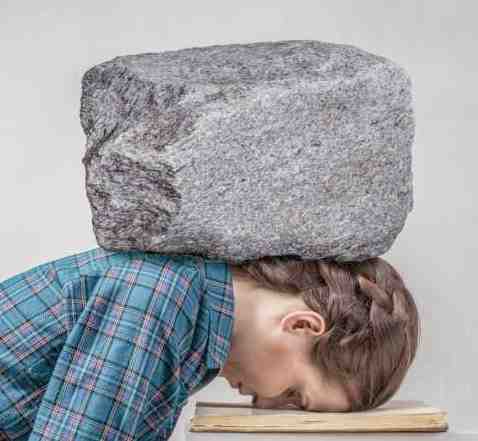
As regular visitors to this site will know, our big themes are about learning: how to think effectively and how to stop thinking.
The first objective of effective thought is a natural product of the second objective. Why? Because when your mind is quiet you have insight and see things as they really are.
So, counter-intuitive as it may seem, learning and mastering the art of not thinking is a useful and practical foundation for learning how to think effectively.
The difficulty with this is that without practice, your mind is not going to stop thinking on demand.
The most effective way of achieving this is with the zen practise of mindfulness.
So your first challenge in exercising the art of clear thinking is:
We are not talking about becoming a zen master or any kind of expert practitioner. This is just about learning a few simple techniques that will enable you to pause and take an inwards step back.
This will allow your observing mind to disengage from your everyday "monkey mind" to observe the ebb and flow of your impulsive reactions to the events that take place in your life.
[2] Develop awareness
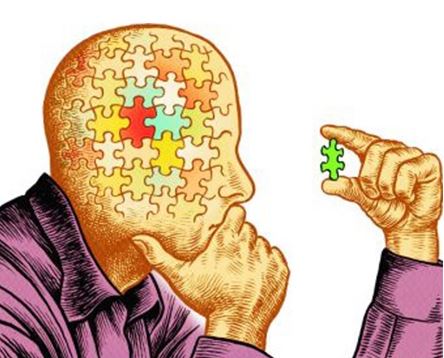
- You need to have a deep awareness of the range of cognitive biases and distortions to which we are all so susceptible.
- You also need to have deep awareness of the power and pitfalls of the mental short cuts [heuristics] that we all use all the time in everyday decisions.
- Equally important is an awareness of the boundary between knowing what you do know and knowing what you don't know. This is all about understanding your circle of competence.
[3] Learn how to think
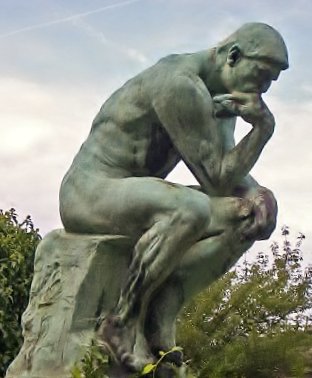
As noted in How To Think:
"We are currently living in an age of unreason where:
- Experts are denigrated and ignorance, bias and prejudice is celebrated;
- Woke thinking takes precedence over reasoned debate;
- Virtue signally takes precedence over private philanthropy;
- Intelligent discussion and agreement to disagree and respect for other shades of opinion are denied in the current cancel culture;
- Public debate is hijacked and taken over by group think and mob rule.
All of this provides another very powerful rationale and motivation for learning how to think effectively."
This site has extensive resources on thinking skills and I recommend that you pay particular attention to:
The Art Of Thinking Clearly And The Balanced Life
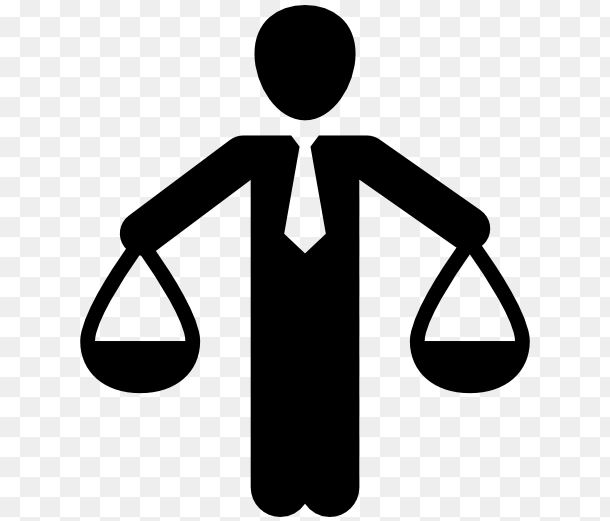
I want to conclude this article by making an appeal for:
[1] A balanced approach to the art of thinking clearly.
[2] Taking the middle path and the avoidance of extremes.
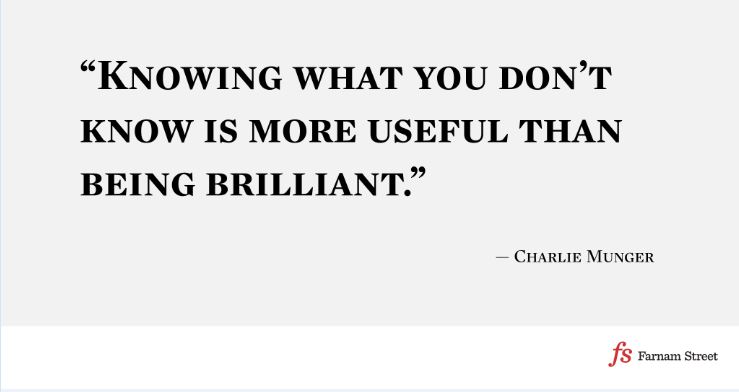
Further Reading:
- Asking The Right Questions - How To Avoid Wonky Thinking
- How Not To Be Stupid - 4 Key Tips
- Finding Signal In The Noise - How To Avoid The Noise Bottleneck
- How To Win Without Succeeding - Avoid Losing!
*************************
Next Article: Algorithms to Live By
Return from "The Art Of Thinking Clearly" to: Walking The Talk
LATEST ARTICLES
Does Prayer Work? The Psychology of Prayer, Meditation and Outcomes
 Reality Is A Complex System Of Countless Interactions - Including Yours. So does prayer work? The problem is that the question itself is usually framed in a way that guarantees confusion. We tend to a…
Reality Is A Complex System Of Countless Interactions - Including Yours. So does prayer work? The problem is that the question itself is usually framed in a way that guarantees confusion. We tend to a…Living in Survival Mode Without Surrendering Mental Authority
Living in Survival Mode Without Surrendering Mental Authority
 Clear Thinking When You’re Just Trying to Stay Afloat. Many people today are overwhelmed because they are living in survival mode - not temporarily, but as a persistent condition of life. For many, th…
Clear Thinking When You’re Just Trying to Stay Afloat. Many people today are overwhelmed because they are living in survival mode - not temporarily, but as a persistent condition of life. For many, th…Manifestation Without Magic: A Practical Model
 Manifestation without magic is not a softer or more intellectual version of popular manifestation culture. It is a different model altogether. Popular manifestation teachings tend to frame reality as…
Manifestation without magic is not a softer or more intellectual version of popular manifestation culture. It is a different model altogether. Popular manifestation teachings tend to frame reality as…Staying Committed When You Can't See Progress - The Psychology of Grit
 Uncertainty Is Not The Absence Of Progress, Only The Absence Of Reassurance. One of the most destabilising experiences in modern life is not failure, but uncertainty and staying committed when you can…
Uncertainty Is Not The Absence Of Progress, Only The Absence Of Reassurance. One of the most destabilising experiences in modern life is not failure, but uncertainty and staying committed when you can…The Battle For Your Mind - How To Win Inner Freedom In A Digital Age Of Distraction
 From External Events to Inner Events. We often think of “events” as things that happen out there: the traffic jam, the rude comment, the delayed email reply. But what truly shapes our experience is wh…
From External Events to Inner Events. We often think of “events” as things that happen out there: the traffic jam, the rude comment, the delayed email reply. But what truly shapes our experience is wh…How to See Your Thoughts Without Becoming the Story
 A Practical Guide to Thought-Awareness. You can spend your life inside the stories of your mind without ever learning how to see your thoughts clearly and objectively. Most of the stuff we tell oursel…
A Practical Guide to Thought-Awareness. You can spend your life inside the stories of your mind without ever learning how to see your thoughts clearly and objectively. Most of the stuff we tell oursel…The Collison Decision Matrix - A Simple Framework for Better Choices
 The Collison Decision Matrix Is A Practical Everyday Thinking Tool. Most of us spend a surprising amount of time worrying about decisions. From small ones such as what to wear, what to eat, what to te…
The Collison Decision Matrix Is A Practical Everyday Thinking Tool. Most of us spend a surprising amount of time worrying about decisions. From small ones such as what to wear, what to eat, what to te…The Power Of Asking The Right Question
 The Power Of Asking The Right Question Lies In The Quest For Insight. To experience the power of asking the right question you must develop the practice of asking questions. The best way to improve th…
The Power Of Asking The Right Question Lies In The Quest For Insight. To experience the power of asking the right question you must develop the practice of asking questions. The best way to improve th…Site Pathways
 Here is a site pathway to help new readers of Zen-Tools navigate the material on this site. Each pathway is based around one of the many key themes covered on this site and contain a 150 word introduc…
Here is a site pathway to help new readers of Zen-Tools navigate the material on this site. Each pathway is based around one of the many key themes covered on this site and contain a 150 word introduc…How To Live With Contradiction - Beyond Thought Let Stillness Speak
 A major impact on so many peoples' lives is the situational contradiction of unfilled realistic expectations. So where does all this leave us? Well here we are, with mental equipment that is more lim…
A major impact on so many peoples' lives is the situational contradiction of unfilled realistic expectations. So where does all this leave us? Well here we are, with mental equipment that is more lim…How To Trust The Process Of Mindfulness - Right Now
 In mindfulness, the process isn’t some distant goal — it's what is happening right now. When we talk about how to trust the process of mindfulness the credibility of the process is heavily dependent…
In mindfulness, the process isn’t some distant goal — it's what is happening right now. When we talk about how to trust the process of mindfulness the credibility of the process is heavily dependent…
